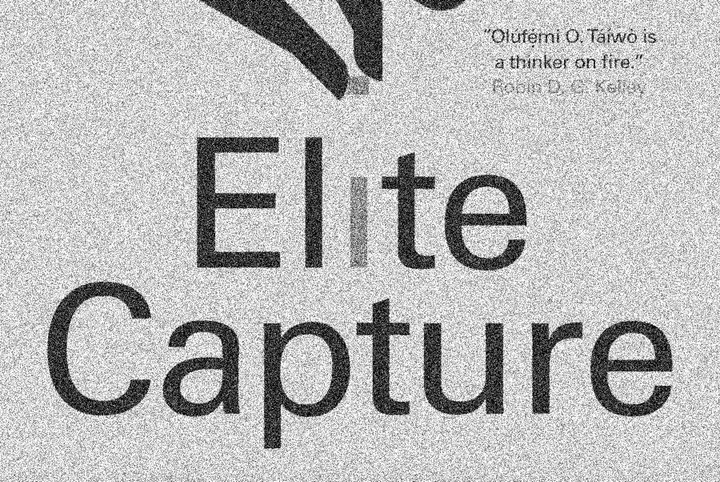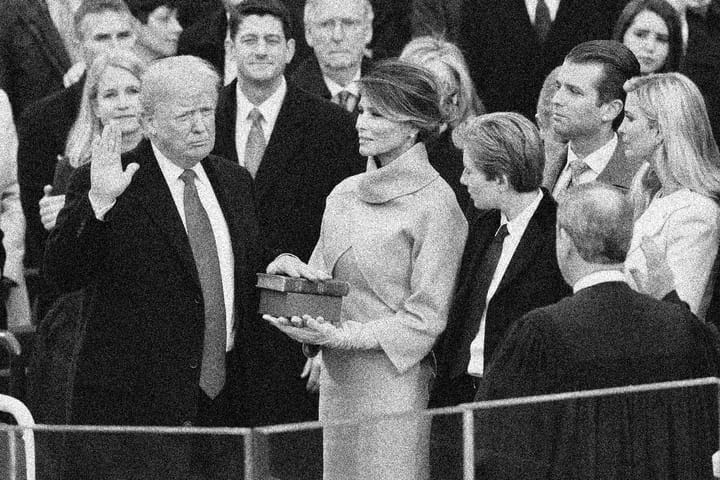Resisting Wonkery
The problem with establishment wonkery is not only that it serves the interests of the elite but also that it begets more wonkery from our side.

The prevailing ideology of expertise is a symptom of the decline of democracy, hiding the political and social conditions that determine what amounts to “expert” opinion. When a politician tells you something is complicated, most of the time they are getting ready to say that you need to manage your expectations. The rhetoric of “complexity” and the fetish for “details” function to deflect desires and popular mandates from below. Once you convince people that their demands are unrealistic or unworkable, the paid flunkies of the capitalist class can take over, as if there is no alternative.
This strategy encourages a depoliticized, disengaged, docile, politically inept, and eventually uninformed population. Capitalist interests become the only ones that have any control over legislation at home or abroad. They become the “natural interests” of America in general, and the only ones that are given a voice within the media. Everything else is an aberration, something that is beyond intelligent, expert discussion. Under these circumstances, labeling something unrealistic or unworkable only means that it contradicts the interests of the capitalist class.
Wonkery is the language of liberal media specialists who feign a non-ideological bird’s eye view. A swathe of elite underlings benefit from the ruse of expertise, including the academy, think tanks, NGOs, and the corporate media sphere with its gaggle of talking heads—an entire economy that depends on producing and reproducing expert opinion. Their “detached, objective analysis” is a cover for maintaining the status quo, and for endlessly churning out content, soundbytes, think pieces, and takes on Twitter.
There are legitimately complex questions, particularly when it comes to strategy, coalition building, and political timing. But they aren’t the ones raised in the liberal media sphere, where the role of expertise is to manage what political goals are acceptable to elites at a given time. The complex questions for us pertain to how we build support for a workable healthcare system. The complex questions for them are ways to call into question the very demand for universal healthcare, to label it beyond the realm of political realism.
Liberal wonkery is a language of the elite, and socialists should avoid it. When making majoritarian appeals, “expertise” is far less important than a clear articulation of shared interests, the power of numbers, and basic class conflicts. In fact, sometimes brutish simplicity can be helpful. Complexity, as it is marshalled in our present political culture, often works to muddy waters and produce artificial divisions.
Refusing the Call to Endless Debate
The best way to avoid the pitfalls of wonk ideology is to remember our true audience. This will prevent us from resisting wonkery with more wonkery, trying to battle every misinformation campaign with our own fleets of fact checkers and op-ed writers, as if setting the record straight is the ultimate goal of politics. The problem with establishment wonkery is not only that it serves the interests of the elite but also that it begets more wonkery from our side.
We need to resist the tendency to be taken in by the incentives that guide pseudo-debate in mainstream circles. Too often our thinking and writing is structured by paranoid projection, where we feel we need to constantly respond to the stupidity and incoherence of liberal politics. We need to post more, write more, argue more forcefully. We need to win “the battle of ideas.” But one of the major conclusions of Bernie Sanders’ 2020 campaign is that the “ideological battle” is the easy part. People in large measure want progressive change. The problem is how to generate institutions of mass power that will make the efforts necessary for such change worthy of people’s time.
Unfortunately, we too often play a defensive game of reaction, worrying more about blue checks on Twitter than the opinions of working Americans. Are these really the people we should be trying to appeal to? Beltway sycophants, columnists whose favorite pastime is complaining to management, nasally liberal podcasters and people who make soyface online? Instead of battling against straw men, bad faith trolls, and straightforward stupidity, we should be doing the more difficult work of building the institutions of the working class.
Wonks willfully misunderstand the nature of politics, and often they are trying to do little more than derail or demoralize us. All we really need to know is what is in our best interest and who we might rely on to help us get there. What do we want right now that would make our lives easier, safer, more secure? Who is standing in the way of these things? You don’t need an expert to answer these questions.
The Other Side of Expertise: Elite Incompetence and Stupidity
Thankfully there’s further reason to ignore the expertise that is peddled by elites: it has an absolutely horrible track record, and in most cases it is not even expertise. It is the norm, not the exception, for the flunkies of the capitalist class to be transparently stupid, stubborn, misinformed, and willfully moronic, and to produce policies that end in disasters for everyone else. Incompetence is a major privilege of power, and elites have consistently ignored the most basic facts of science, not to mention popular opinion, in crafting their policies.
Not only the corporate media but also leading experts in government constantly get things totally wrong, and it doesn’t matter when they do. The hosts of MSNBC, CNN, and Fox News, and the opinion writers of the Washington Post, the NYT, or the Atlantic, whose idiocy is only surpassed by their worship of power and their cynical propaganda for monied interests, make careers out of spreading baseless conspiracies, cheering on war after war, and peddling forecasts that are wrong again and again.
While the most commonsense demands of the Left are considered pie in the sky, elite opinion is almost never judged on its accuracy or coherence, on being based in facts, or on any real intellectual criteria at all. If it meets the demands of the ruling class, it is by definition objective, reasonable, and realistic. The details only matter for demands that come from below. If a policy is preferred by elites, we need not fret about how it might turn out.
We can take the career of Joe Biden as an object lesson in the luxury of being both stupid and evil without ever being punished for it. The Democratic party nominee has been responsible for some of the worst, most destructive policies in recent decades, from a ceaseless campaign to cut social programs like Social Security and Medicaid, to the invasion of Iraq, to a bankruptcy bill that has been disastrous for working people. There has been virtually no pushback from “elite experts” on his ceaseless lying about this record.
It would be hard to conceive of a more spectacular illustration of elite incompetence and dysfunction than the current response to the COVID-19 crisis. The details have been enumerated many times already, from simple things like the NYT constantly reporting in the early days that face masks were not needed outside of hospitals, even though their efficacy for slowing the spread of a respiratory disease has been scientifically proven, to large scale mismanagement and downright malfeasance. More stories are sure to come out in the future.
So ignore the people who require an entire architecture of details: even the most ambitious goals are underpinned by quite simple principles and straightforward mechanisms. We shouldn’t try to fight bogus liberal wonkery with more wonkery of our own, we shouldn’t be constantly tripped up by the backwards incentives of the liberal intellectual sphere, and we shouldn’t feel the need to respond to every query, because they aren’t being asked in good faith. Elites get what they want regardless of the outcome, not because they have the best ideas, but because they have all the power. Feasibility is thus a question of political power, not intellectual prowess.
■
Kit Kensington is a latte artist and part-time valet living in Rancho Cucamonga.



